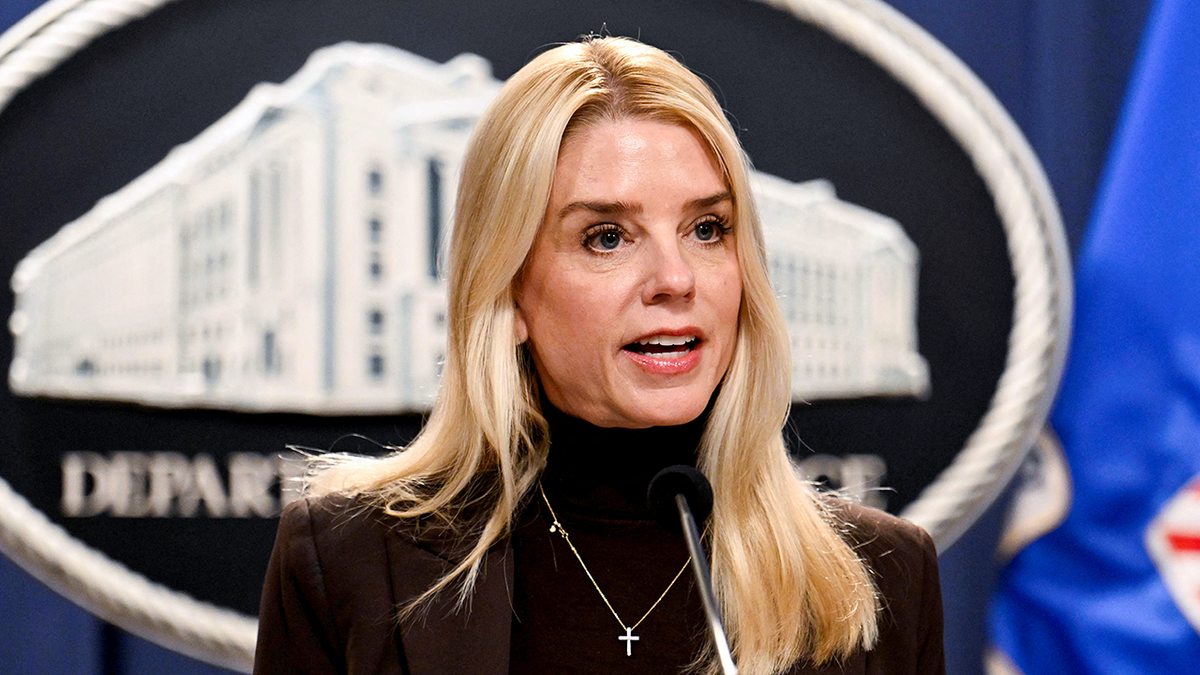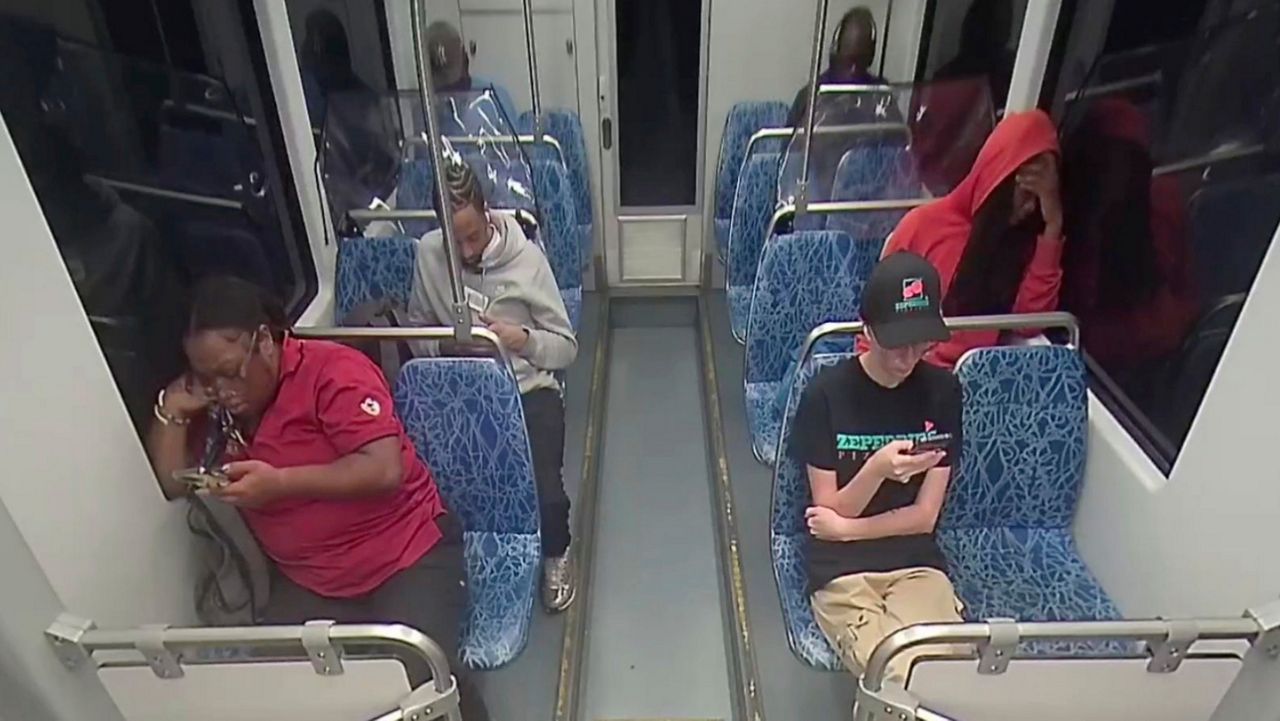
The Department of Justice has taken decisive action in the case of DeCarlos Brown, the 34-year-old man accused of fatally stabbing Ukrainian refugee Iryna Zarutska on a Charlotte train on August 22.
Federal prosecutors filed charges that elevate the case to national prominence, pledging that Brown will never again “see the light of day as a free man.” The DOJ’s intervention underscores both the seriousness of the crime and the growing debate over public safety in major U.S. cities.
The incident unfolded late at night as Zarutska, 23, was riding a Charlotte train. Surveillance video showed her sitting quietly in front of Brown, with no interaction between them.
Suddenly, Brown stood up, raised a knife, and attacked. Additional footage later captured Brown making a chilling remark: “I got that white girl,” as he waited to leave the train.
Zarutska had come to the United States as a refugee, seeking safety and the promise of a better life. Friends described her as hardworking, optimistic, and eager to embrace new opportunities.
Her life was cut short in an act of senseless violence that shocked Charlotte residents and resonated across the nation.
Attorney General Pam Bondi announced that Brown is being charged federally with committing an act causing death on a mass transportation system. This charge carries severe penalties, including eligibility for the death penalty.
“We will seek the maximum penalty for this unforgivable act of violence — he will never again see the light of day as a free man,” Bondi said. She framed the crime not only as a tragedy but also as an indictment of local policies that allowed Brown to remain free despite his lengthy record.
This Fatal Stabbing Video Is Worse Than You Think... pic.twitter.com/5s5p73VZTk
— Daily Caller (@DailyCaller) September 8, 2025
The DOJ emphasized that sentencing will ultimately be determined by the courts, but the department’s posture is clear: this case will be prosecuted with the full weight of federal law.
Brown’s background has added to the outrage. With at least 14 prior arrests, his record includes felony larceny, robbery with a dangerous weapon, and communicating threats. Despite these offenses, he was released in January on nothing more than a written promise to appear in court.
This release, critics argue, is emblematic of “soft-on-crime” policies that prioritize leniency over public safety. The DOJ specifically pointed to Democrat-led cities where such approaches have allowed repeat offenders to reenter communities.
Brown also struggled with severe mental illness, including a diagnosis of schizophrenia. He had previously been arrested for misusing the 911 system, making bizarre claims that something was controlling when he walked, talked, and ate.
Yet despite these alarming behaviors, systemic failures allowed him to cycle in and out of custody without lasting intervention.
Attorney General Bondi did not mince words in criticizing the policies that led to Brown’s release.
“Iryna Zarutska was a young woman living the American dream — her horrific murder is a direct result of failed soft-on-crime policies that put criminals before innocent people,” she said.
Her comments tie the case into a broader political debate. The Trump administration has consistently emphasized “law and order” as a central theme, contrasting its approach with what it describes as permissive policies in Democratic cities.
For the DOJ, this case illustrates the consequences of allowing violent offenders back onto the streets without sufficient accountability.
Zarutska’s death resonates not only because of its brutality but also because of who she was. As a refugee from war-torn Ukraine, she embodied the promise of America as a place of refuge and opportunity.
Friends recalled her excitement about starting fresh in the U.S., her love for music, and her plans to continue her education.
Her murder has devastated Charlotte’s Ukrainian community, many of whom had come to the U.S. under similar circumstances. Vigils have been held in her memory, with mourners calling for justice and greater protection for vulnerable residents.
The case has sparked outrage far beyond Charlotte. Citizens across the country see it as emblematic of failures in the criminal justice system, particularly when it comes to repeat offenders with histories of violence.
For supporters of the Trump administration, the DOJ’s aggressive stance confirms the need for stricter enforcement and tougher sentencing. They argue that Brown should never have been free to begin with and that Zarutska’s death was preventable.
Critics, meanwhile, warn that the case risks oversimplifying complex issues such as mental illness and systemic failures in local courts. They caution against turning the tragedy into a political weapon, though they acknowledge the system clearly failed Zarutska.
This case comes amid a nationwide debate over public safety. Many cities have faced spikes in violent crime since the pandemic, with critics blaming progressive reforms that emphasize reduced bail, diversion programs, and alternatives to incarceration.

Proponents of reform argue that the old system disproportionately punished the poor and minorities without addressing root causes.
The Charlotte stabbing has given new ammunition to opponents of leniency, who see Brown’s release as a direct cause of Zarutska’s death. The DOJ’s intervention suggests that the federal government is willing to step in when local systems fail to protect the public.
At the same time, the case highlights the need for better mental health interventions. Brown’s schizophrenia and erratic behavior had been documented for years, but he never received sustained treatment that could have reduced his risk of violence.
As the case proceeds, Brown faces the possibility of the harshest penalties available under federal law, including life in prison or the death penalty. The DOJ has made clear its intention to pursue maximum punishment, ensuring that he “will never again see the light of day as a free man.”
For Zarutska’s family and community, the federal charges offer some reassurance that justice will be pursued with vigor. But the larger questions remain: how can America’s justice system balance fairness with safety?
How can it ensure that violent repeat offenders are not given leniency at the expense of innocent lives?
The murder of Iryna Zarutska on a Charlotte train is both a personal tragedy and a symbol of broader systemic failures. The DOJ’s swift action and promise of maximum punishment underscore the seriousness of the crime and the administration’s commitment to law and order.
For many, the case is proof that lenient policies have real, deadly consequences. For others, it is a reminder of the urgent need to reform how the system handles mental illness and repeat offenders. Either way, Zarutska’s death has ignited a debate that will reverberate far beyond Charlotte, shaping discussions about justice, safety, and responsibility in America.




